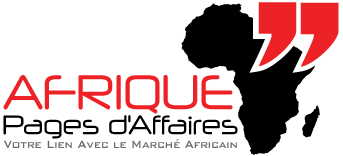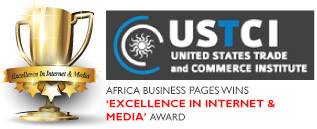>> Business Guide Africa >Lubricants, Oil & Grease
The Market for Lubricants
Demand for lubricants oil and grease in Africa is being met by some enterprising manufacturers in the UAE
The lubricants industry in the UAE has been known as one of the most significant components of re-exports from the country. The UAE has been at the forefront of meeting the demands for lubricants not only within the Middle East region but also in neighbouring countries like the CIS, India, Pakistan, Sri Lanka, Bangladesh and Africa.
In recent years, East Africa and the CIS are emerging as major export destinations for lubricant products from the UAE. “We have been registering a significant increase in our lubricants exports to East Africa. We are able to provide cost effective solutions to meet the rising demand for all kinds and grades of lubricants in African countries,” said Mohammed H. Al Shamsi of UAE-based ADNOC Distribution, one of the leading manufacturers of all kinds of lubricants in the UAE.
Exports from Dubai consist 60 per cent of lubricants, such as gear oil and greases, and 40 of industrial lubricants, according to industry sources. “There seems to be a growing market and although we have only recently started exports to East Africa, we are hopeful that it will continue to grow,” said Naeem Amin Tai, managing director of Pride International Lubricants, manufacturers of a wide range of lubricants. The company has been exporting its lubricants to Pakistan, Yemen, Bahrain, Qatar, Oman, East Africa, India, the CIS and Saudi Arabia.
Within the Arabian Gulf region, Elf is one of the leading suppliers to the domestic market and Qatar for industrial oils, which are used in the construction industry, on machinery and in the oil and gas industry. Lubricants are used to decrease friction of machinery at contact points, where the heat and general wear and tear take their toll. It is made up of 60 per cent base oil and chemical additives.
UAE-based lubricant manufacturers are now concentrating their efforts to capture the emerging markets in Africa and the CIS (Azerbaijan, Kazakhstan, Uzbekistan, Turkmenistan, Kyrgystan and Tadjikistan) make up one of the fastest-growing markets in the world for lubricants and potentially one of the biggest.
“The CIS and Africa have the potential to emerge as a big market for UAE-based lubricant manufacturers and dealers going by the steady increase in demand over the last few years,” says Jasmeet Hakimzada of Zafco Trading, manfacturers of Zeetex brand of lubricants.
“In the past, users of lubricants, be they industrial or automotive customers, were satisfied with locally-produced brands,” says Boney Katatumba, president of the COMESA Business Association in Uganda. “With the advent of sweeping political and economic changes in Africa and the consequent globalisation of the marketplace, customers in Africa are now demanding higher-quality products,” he says.
The demand for industrial lubricants is driven primarily by the major industry sectors which include the petroleum industry, mining, agriculture and industrial manufacturing and processing, where present. Lubricants markets are generally less impacted by the controls and regulations which are often applied to fuel products.
Lubricant blending using either locally refined base stocks or imported base oils is carried out in a number of countries. South Africa is a major centre for lubricant and grease manufacture, with at least nine blending plants. Algeria, Egypt, Libya, Morocco, Nigeria and Tunisia have substantial blending capacity as well. Other countries which have blending facilities include Ivory Coast with two plants, Kenya with two plants, Mozambique, Tanzania and Zambia.
With so much happening in the lubricants market, it was only natural that manufacturers from oil rich countries in the Middle East emerged as significant suppliers of oil, lubricants and greases. In recent years, a lot of countries have been sourcing lubricants and greases from the United Arab Emirates. It is estimated that the last three years have seen a cent per cent increase in the export of lubricants from the United Arab Emirates. In fact, the oil, lubricants and greases sector in the UAE has registered an impressive growth in the last decade.
Demand for these products grew at an exponential rate after the first oil price rise in 1973, but stabilised to moderate growth rates during the ‘80s. In fact, it was a feature of the UAE market that demand for oil, lubricants and greases remained stable during much of the recession of the ‘80s, a period marked by Iran-Iraq war and falling oil prices. However, UAE’s re-exports of oil, lubricants and greases was particularly affected by the loss of the Iran market during this period.
The end of the Gulf war heralded a new era as demand for oil, lubricants and greases. Demand for these products accelerated to rates beyond most expectations. This was boom time for manufacturers and traders based in the United Arab Emirates. This upward swing continued till the fallout of the Russian market in 1998. The economic recession in the Far East countries of Indonesia, Malaysia, Thailand, Singapore and Hong Kong coupled with the crash of the Russian market dealt a severe blow to the lubricants trade in the UAE. Excessive stocks caused further difficulties for local traders and manufacturers.
The availability of a vast range of products at competitive prices has been a major factor in attracting customers to UAE’s lubricants market. As a result, manufacturers of lubricants in the United Arab Emirates, have been aggressively pursuing international markets in the last few years.
According to available statistics, Africa presents one of the fastest developing markets in the world and the demand for lubricants is growing at a frenetic pace. Not only is there a huge pent-up demand for upmarket products from Europe and North America but also for the entire range of greases and oils from the major manufacturers in the Middle East.
Most major international manufacturers are not interested in supplying quantities than do not run into a minimum of a container load. Often it is not viable for buyers to go in for such large volumes. Secondly, there is also the question of sourcing products from different countries and even continents. For instance, an importer in East Africa may be interested in 2T Oil, battery water and greases. He might have to source these products from different parts of the world.
In such a scenario, UAE offers importers the ideal market place. “African buyers can source all their requirements from just one location,” says Shabbir Ali, General Manager of Artra Lubricants, a leading supplier of lubricants and greases in Dubai.
“Buyers can select from a vast range of products and buy just the quantities they require and then transport the goods back to their home countries at very competitive freight costs,” he says. The profit margins in this business are high and plenty of African buyers are flocking to the United Arab Emirates to meet growing requirement in their own countries.
“We are in a position to meet any specific requirements African buyers may have and are able to supply all that they need,” says Aleem Quraishi, managing director of UAE-based Quepet Lubricants. “We specialise in automotive, industrial and marine lubricating oils and greases and are very happy with the interest shown by African buyers in our various products,” he adds.
UAE’s strength in the lubricants business is based on low-priced goods and good quality. “We are able to offer our products to African buyers at very competitive prices due to the fact that we operate on low profit margins and a very low-cost environment in terms raw material and base stocks,” says Azhar of Sharjah-based Al Mehdar. “As such, African buyers are very happy to deal with us and we have a large number of repeat orders from them,” he says.
On the other hand, African buyers too are very happy to come to the UAE to source their requirements. “Prices in Africa for these goods are almost double,” says James Kyadze of Uganda, who was recently in Dubai to buy lubricants and greases. “Dubai is a good place to buy these goods – easy availability of goods, excellent shipping links and a well-established manufacturing base make the UAE an ideal business destination for me,” he says.
This sentiment very much embodies the expectations that African buyers have from the UAE and this trend of sourcing lubricants from the UAE is expected not only to continue in the years to come but also grow at a rapid pace.

Annoncez dans le magazine
Magazine en ligne
Télécharger Annuaires Afrique
Ajouter votre Profil de l'entreprise
-
 Arabian Jerusalem Company:
Arabian Jerusalem Company:
L'un des principaux fournisseurs de machines et de matériel de construction neufs et d'occasion. Les produits incluent des Grues, Jantes Chargeurs, Bulldozers, niveleuses, rouleaux compresseurs, Tractopelles JCB, Pelles, générateurs, compresseurs d'air, etc .. Bétonnières -
 Global Auto Parts:
Global Auto Parts:
Fournisseur de toute une gamme de pièces d'automobiles après-vente pour une grande variété de voitures. Recherche distributeurs et des agents en Afrique... -
 World Wide Auctioneers:
World Wide Auctioneers:
Auctioneers de machines neuves et d'occasion contruction, de machines industrielles, de transport et d'équipements lourds. World Wide Auctioneers est également l'agent pour Unic Grues et un nom de renommée mondiale dans le dépôt de machines et d'équipements lourds ... -
 Hollywood Style Cosmetics:
Hollywood Style Cosmetics:
Gamme complète de produits cosmétiques qui sont extrêmement populaires auprès des acheteurs africains. La société offre des promotions pour les clients africains et la recherche de distributeurs en Afrique... -
 Solite Batteries:
Solite Batteries:
Batteries Solite gagnent en popularité dans les marchés africains en raison de leur longue durée de vie et des prix compétitifs. Contactez directement les concessionnaires et économiser de l'argent
-
 Marchands de pneus à Dubaï
Marchands de pneus à Dubaï
Contactez-exportateurs à Dubaï spécialisée dans les pneus, les tubes et les batteries. Offres spéciales pour les acheteurs africains offerts... -
 Le marché des pneus en Afrique
Le marché des pneus en Afrique
Importateurs en Afrique sont à la recherche de nouvelles sources d'approvisionnement pour répondre à la demande croissante de pneus dans les marchés africains ... -
 Trouver des partenaires commerciaux en Afrique
Trouver des partenaires commerciaux en Afrique
Lignes directrices sur la façon de trouver des partenaires commerciaux, des agents, des distributeurs sur les marchés africains... -
 Répertoire des entreprises Nigeria
Répertoire des entreprises Nigeria
Télécharger le Répertoire des entreprises Nigeria en format Excel. Liste des entreprises au Nigeria sous différentes catégories commerciales...
-
Stay up to date

- Abonnez-vous au flux RSS




Manufacturers of Lubricants, Oil, Greases